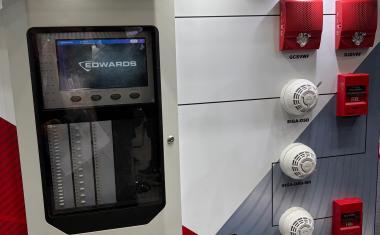Apollo fire detection protects Australian Army base
Apollo fire detection technology has been chosen to protect a major Australian Army base; Blacktown 200 Man Camp at Robertson Barracks near Darwin, Australia. The contract for the ...

Apollo fire detection technology has been chosen to protect a major Australian Army base; Blacktown 200 Man Camp at Robertson Barracks near Darwin, Australia. The contract for the fire detection was awarded to Ampac Technologies Ltd.
Blacktown 200 Man Camp forms part of Robertson Barracks in Australia's Northern Territory. Built in 1995, the Barracks are home to the 1st Brigade and the 1st Aviation Regiment. The 1st Brigade is the Australian army's light armoured brigade, consisting of more than 3400 civilian and military personnel, and its soldiers are at the forefront of Australia's commitments around the world. The 1st Aviation Regiment is a unit of mixed-wing aircraft and helicopters, including the $31 million Tiger Armed Reconnaissance Helicopter, which can use the helicopter airfield at the Robertson Barracks.
The barracks includes 100 accommodation blocks. The 5000 square metre Blacktown camp required a fire detection system that could reliably protect personnel occupying its large number of accommodation rooms, amenities and common rooms. As the camp includes sleeping accommodation, it was important to minimise false alarms. Ampac supplied a fire detection system based around its FireFinder 10 loop panel, incorporating 270 Apollo XP95 smoke and heat detectors and 220 integrated sounders. The fire system is configured into zones made up of eight or 16 rooms. In the event of an emergency, each zone and will sound individually and not cascade, whilst the amenities and common rooms are also zoned and sound individually.
The client required that each room was fitted with an Alarm Acknowledgement Module (AAF). In the event of a non-fire alert, the occupant has 30 seconds to press the AAF, providing a further 90 seconds to clear the source of alarm. If the source clears within this period the alarm will reset. If it is not cleared, the alarm will continue and the building is evacuated.
Apollo technology was chosen as it has the flexibility to meet the customer's requirements. XP95 addressable devices make for easy identification of alarms and any faults, allowing a safety officer or technician to gain access to the specific area quickly and without confusion. Cost benefits can also be achieved, as the addressable sounders and AAFs save money on additional devices, cabling and installation labour.









